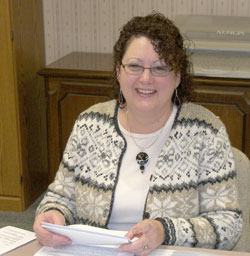March 30, 2009
|
 J. Michael Caley, Senior Pastor, Banner of Christ UB (Byron Center, Mich.)
J. Michael Caley, Senior Pastor, Banner of Christ UB (Byron Center, Mich.)
The Nominating Committee was appointed last fall to fill two ballots for the June 2009 US National Conference:
- Bishop.
- Executive Leadership Team.
I was named chairman. We held our initial meeting January 15-16 in Canton, Ohio. Prior to these meetings, we received input from Bishop Ron Ramsey and Pat Jones, Director of Healthy Church Ministries. In addition, we gathered information from various regions and clusters. Realizing that this was a God-sized task, we sought divine direction asking for clear consensus.
During the past four years, Bishop Ramsey’s leadership in growing healthy Great Commission churches has been positive. We clearly heard throughout the denomination the need for continuity. Understandably, a new bishop will bring his own leadership vision and administrative style to the task of growing healthy Great Commission churches.
The Nominating Committee received lists of all ordained United Brethren ministers eligible to serve as bishop, whether currently assigned, unassigned, or retired. From that list we developed a slate of individuals who possess the leadership qualities sought in a bishop.
We contacted seven individuals up through March 15, giving them the opportunity to pray and reflect upon their decision. Of the individuals we contacted, one felt a clear call of God’s leadership for the office of bishop at this time.
We planned, and preferred, to offer a ballot with a least two names (additional nominations can be made from the National Conference floor). However, we also prayed that, as a Nominating Committee, we would have consensus concerning the ballot. In presenting the name of Rev. Phillip Whipple as a nominee for bishop of the Church of the United Brethren in Christ, USA, our prayer for consensus has been answered.




 Jane Seely has joined the staff of Healthy Ministry Resources. She is pretty much taking the place of Phylis Stouder, who retired at the end of the year but who still comes around quite a bit to help out. Jane works with the bookstore to ship Sunday school literature and other materials, and also does miscellaneous stuff around the office.
Jane Seely has joined the staff of Healthy Ministry Resources. She is pretty much taking the place of Phylis Stouder, who retired at the end of the year but who still comes around quite a bit to help out. Jane works with the bookstore to ship Sunday school literature and other materials, and also does miscellaneous stuff around the office.